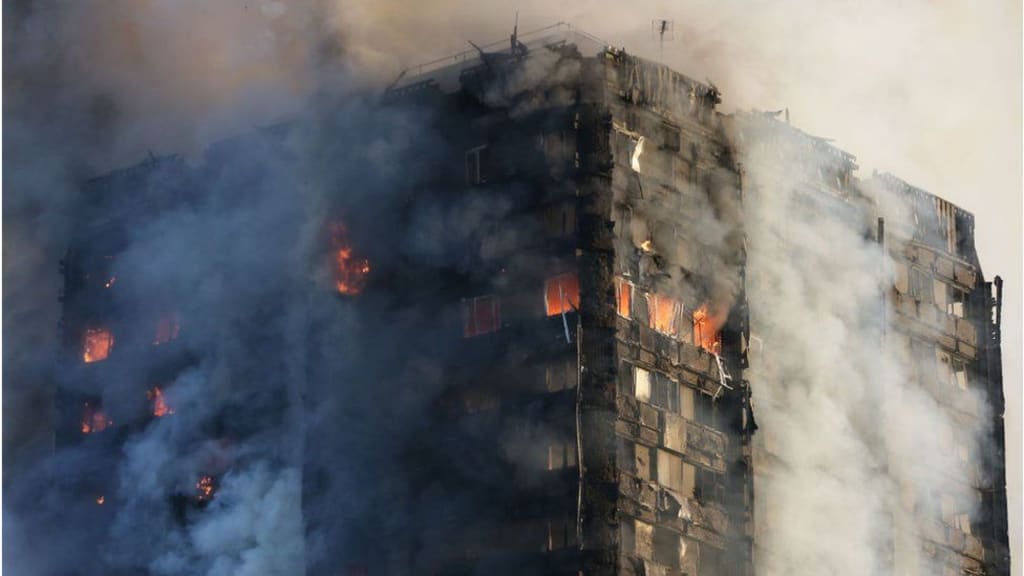
Following the publication of the Grenfell Inquiry, the vast majority of disability charities based in the UK are calling for a sea change to the way housing law and policy are put in place by the government. The report looked in to and examined the different circumstances which surrounded and led up to the ferocious fire at Grenfell Tower on the night of 14th June 2017. Following the publication of the inquiry a panel of experts produced a report which put in writing details of how the fire started, how it spread and what safeguards need to be put in place to avoid a similar incident happening in the future.
One of the main findings of the report was that the progress of the fire through out the building had been accelerated because of the type of cladding that had been installed on the exterior of the building. Measures have now been put in place to remove such cladding on buildings through out the country. Details were also given as to how the fire started and ways to improve the way residents could exit the building in a quick and safe manner.
The charities involved in the examination of the inquiry have given a statement in which they call for a number of measures to be put in place so that we can all live in a safe location in which people can manage to get around easily and take the necessary measures when and where needed. If these measures are put in place fully, it should ensure that the country becomes a much safer place for us all to manage to live in and adapt to.
The first of the measures included in the statement details the implementation of a personal evacuation plan for people who require support when exiting the building in an emergency. If we are busy working in a certain location of a building and the fire alarm goes off, there can be wide spread panic which can lead to people rushing to their nearest exit. In some cases this may end up resulting in a stampede which may lead to people being trampled on and in some cases accidentally harmed by others. What is being proposed is that every disabled individual should be able to take part in co-producing their own action plan which will detail the steps they need to take to access their nearest emergency exit when and where needed.
Any proposals must be developed in collaboration with Disabled people
Disabled People’s Organisations (DPOs) should be involved in developing any further proposals relating to the safety of disabled residents from the outset and not merely after they have already been developed and published for consultation.
Extend the definition of higher-risk buildings
The Government must act immediately on what the Grenfell Tower Inquiry emphasised was an “urgent” recommendation. We call on the Government to extend the PEEPs requirement to all residential homes housing disabled residents to which the Fire Safety Order applies.
Acknowledge Disabled people in legislation and guidance on fire safety strategy
The report highlighted the need to understand the rate at which fire is likely to spread and the time required to evacuate residents, including those with physical or mental impairments. There must also be a fire safety strategy, completed by a registered fire engineer to be submitted with building control applications, which must take into account the needs of vulnerable people.
These recommendations foreground the risks to Disabled people for building design and fire safety strategy. The Government must implement them.
Other measures included in the report included the movement to making all residential buildings fully accessible so that people who may need more support to get in to or out of the building can do so with as little hassle as possible. This ensures that everyone can be kept as safe as possible in case of any sort of emergency.
Measures were also laid out to consult with anyone who may be in extra need to find out the best way to help them as there may not be a one size fits all way of improving the situation. Adaptations need to be made so that we can all accommodate each other and manage to accept each other’s needs and level of ability.
Disabled people should receive wrap around support when buildings are being remediated, whether for the removal of cladding or the making of other improvements. This means the building owner and manager working with social care services, housing services and private building contractors, to ensure that Disabled residents are supported throughout this disruptive and distressing process. This should be set out in law.
If you’d like to take a more detailed look at the observations of UK disability charities following the publication of the Grenfell Inquiry, you can find this at: